This website uses cookies so that we can provide you with the best user experience possible. Cookie information is stored in your browser and performs functions such as recognising you when you return to our website and helping our team to understand which sections of the website you find most interesting and useful.
Croatia Travel Advice
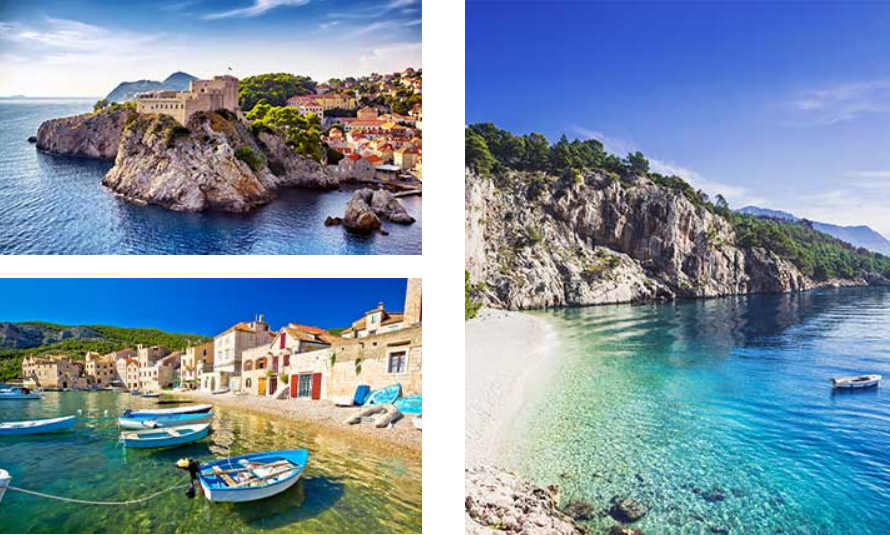
Getting to Croatia
Croatia is located in the heart of the Balkans, in southern Europe. It has a few international airports linked to cities around the world and is very well connected to Europe’s capital cities. It is possible to travel to Croatia by land from neighbouring countries of Slovenia, Hungary, Serbia, Montenegro and Bosnia and Herzegovina. It’s also a popular stop on many Mediterranean sailing trips. Zagreb receives the highest number of international flights while also being the hub for the national carrier – Croatia Airlines.
- London to Zagreb – 2 hours direct.
- Sydney to Zagreb – up to 24 hours, connecting.
- Auckland to Zagreb – 1+ days, connecting.
- New York to Zagreb – 11 hours, connecting.
- Los Angeles to Zagreb – From 14 hours, connecting.
- Toronto to Zagreb – 9 hours, direct.
Main airport for Croatia
The biggest international airport in Croatia is Zagreb Franjo Tuđman Airport”. Other important airports are Split Resnik Airport, Dubrovnik Čilipi Airport, Zadar Airport and Pula Airport.
There are various other small airports in Croatia so always check the closest one to your chosen destination.
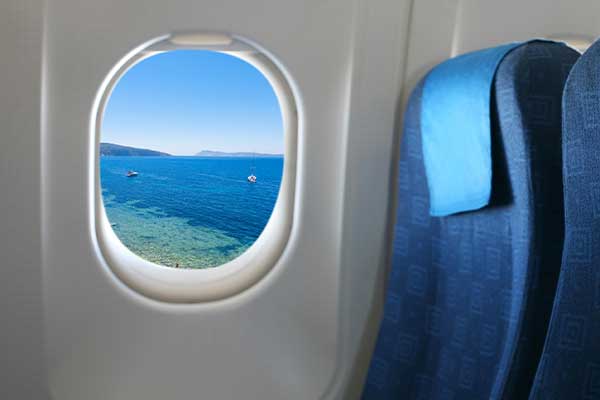
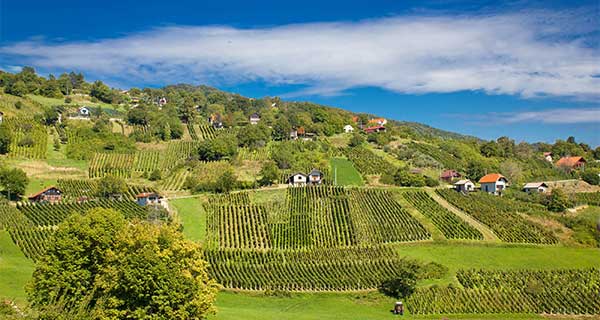
Geography & Landscape of Croatia
Croatia has the dream landscape for anyone who loves nature and the ocean. It has over 1,700 kilometres of coastline, eight spectacular national parks and plenty of lush countryside. Mountains pepper the country with the largest being Dinara, which also borders Bosnia and Herzegovina.
The Croatian landscape is perfect for those who enjoy hiking and being outdoors in general. Stroll through national parks or walk through the islands for some spectacular ocean views.
Culture, religion and etiquette
Croatians are very proud people and have a lot of love for their country – especially given that their independence is still relatively fresh. This nationalism can be felt throughout the country, especially at celebrations or sporting events. The Croatians love football!
There is no official religion in Croatia and people have the freedom to follow the religion of their choice. However, the large majority of Croatians identify as Christian and are members of the Catholic Church, while around 5% identify as Muslim. A small percentage of people identify as Protestant, atheists or agnostics.
Family in Croatia is everything. It is common for children to live with their parents until they are married, family gatherings are the norm and a very high value is placed on your family relations. Croatians are also very hospitable and will make every effort to make you feel welcome – often serving up multiple dishes to their guests.
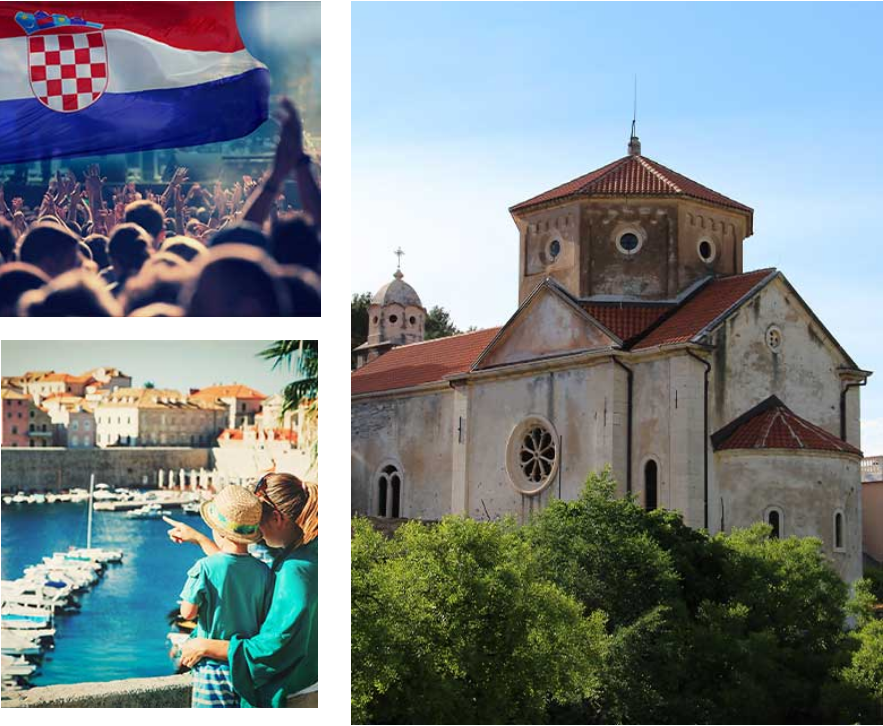
Languages spoken
The official language of Croatia is Croatian. Minority languages in Croatia are Serbian, Italian and Czech. In the cities, most people have a basic understanding of English, and people within the tourism industries will speak English well. As always, it’s polite to learn a few words of the local language, even just hello and thank you will impress the locals!
Capital city
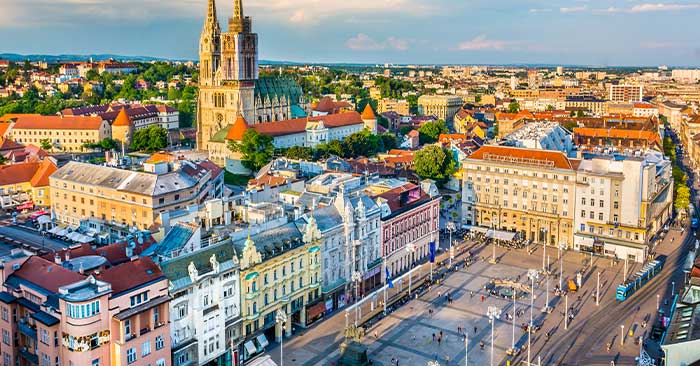
Zagreb
The capital city of Croatia is Zagreb. It has an estimated population of just over 800,000 people, while the metropolitan area brings it up to around 1.2 million. This is the only area in Croatia that exceeds 1 million residents.
Dubrovnik however is the most visited city in Croatia, with a recorded 4 million visitors in 2018.
Visas
This is to be used as a guideline only. When visiting any country, check the specific requirements beforehand on the official government visa website for that country.
Most nationalities are able to visit Croatia for a period of up to 90 days visa free – including British, EU passport holders, Canada, Australia and New Zealand. Croatia is part of the EU however they have not yet joined the Schengen Zone. This means that travellers on a Schengen Visa who do not fall under the visa free 90 day rule will need to check with their local embassy regarding a Croatian visa.
If you do need a visa, it’s best practice to obtain one before you leave home. Regulations can change so it’s always best to double check with the relevant government website before travelling.
Vaccinations & travel health
There are very few health hazards in Croatia. Travel advice for vaccines may vary depending on your country of origin. For the majority however, the CDC and the WHO advise that you will need these routine vaccinations to be up to date: MMR (Measles, Mumps Rubella), TDAP (Tetanus, Diphtheria & Pertussis), Chickenpox, Shingles, Pneumonia, Influenza, Meningitis and Polio.
It is also recommended to have the following vaccinations: Hepatitis A, Hepatitis B and Rabies.
Is it safe to drink tap water in Croatia?
Tap water is safe and readily available everywhere in Croatia. You may see people drinking from fountains located around the towns. It is completely safe for you to fill up your water bottle from one of these fountains as long as there is a marked post saying to do so. However in restaurants, if you ask for water they will likely bring you bottled water. If you don’t wish to pay for this, specify that you would like tap water.
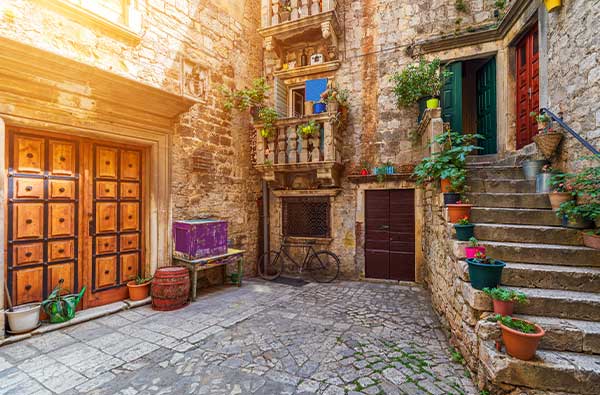
Accommodation in Croatia
In Croatia it is very common to see local people waiting at the ferry ports or bus terminals with signs saying “sobe” which means rooms. These are small, private rooms that are let out and are normally much cheaper than hotel accommodation – they are essentially homestays or guesthouses. They can either be a private room in someone’s house, or a private apartment that the owner uses for holiday rentals. It’s always important to ask questions, sometimes they have photos with them to show you or they will take you to the room to show you before you book and pay. The reason most sobes are cheap is that they are not advertised online, so have no marketing or money transfer costs. They are simply the owner standing with a photo and sign advertising the room, and are designed for backpackers or travellers who arrange accommodation once they arrive.
Electricity and plugs in Croatia
Croatia uses the European standard for electricity which is 220V – 230V with a frequency of 50Hz. Sockets fit plugs which have either two or three round prongs. The US and UK use square prongs so they will need to purchase a converter when visiting Croatia. If you forget, hotels may be able to provide you with spares.
Emergency calls
It is always a good idea to take note of a few numbers in case of an emergency whilst travelling. The most important ones in Croatia are:
- 112 is the number to access the emergency services for all EU countries
- 192 is the national number to reach the police
- 193 is the national number to reach the fire brigade
- 194 is the national number to reach the ambulance
- 195 is the national number for Search and Rescue at Sea
WI-FI and internet access
Travellers won’t have any problems staying connected while travelling in Croatia. Most hotels, guesthouses and accommodation provide WI-FI and you will also find it available in a lot of restaurants and bars.
If you are on an international SIM, data roaming can be expensive in Croatia so we recommend planning your day and sticking to WI-FI where possible. Many apps such as google maps and maps.me work offline too. If you are travelling in Croatia for a long period of time and would benefit from having date and calls, pop into any local convenience store and pick up a local sim card. You can then top it up as you go.
Time zone
Croatia (CET) is 1 hour ahead of the UK (GMT/UTC), 8 hours ahead of Los Angeles (PDT) and 5 hours ahead of New York (EDT). Croatia does have a daylight savings time clock change. To calculate the time difference from your current location, visit timeanddate.com.
Getting around Croatia
Croatia is very easy to travel around. The country is relatively small in size, has good roads and infrastructure and with thanks to the booming tourism, regular bus and ferry services. You should note that train travel is not the ideal option in Croatia as it’s quite slow and there are no railways along the coast – Dubrovnik also does not have a station. The only route that would be useful for tourists is Zagreb to Split.
When you are in your location, if you can – walk! It’s the best way to get to know a city and you never know what gems you will come across when getting lost down the side streets. If you do need to hop on transport all cities in Croatia have local bus services and taxis. Zagreb has a tram system but no city in Croatia has an underground metro or subway system.

Bus
The bus is the cheapest and most preferred way of travelling within Croatia. Services run regularly between the towns and cities and also stop off at popular places such as Plitvice National Park. Buses in Croatia are modern and comfortable, some with toilets and WI-FI on longer journeys. Just so you know, most buses will charge extra for luggage, so always make sure you have change of a few euros.
When planning your Croatia holiday, check a map and make sure you plan the trip methodically so that you aren’t hopping all over the place. Buses between each location only take a few hours, and if you are travelling along the coast, the views are absolutely breathtaking! Note that buses do not take bikes, so if you are cycling, the country train is your better option for longer distances.
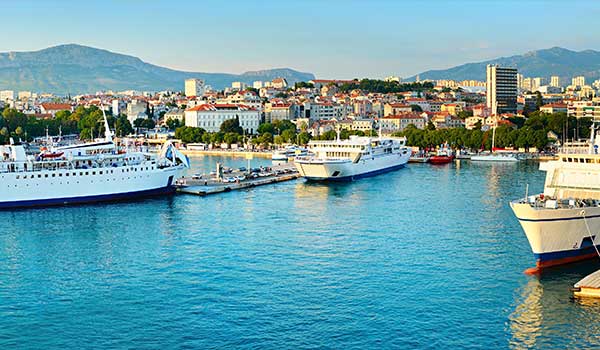
Ferry
Ferry is the only way to travel to the islands such as Korcula and Hvar. The services are run by Jadrolinija and they operate both car and people only ferries. Ferry travel in Croatia is very comfortable and even part of the experience, with lovely ocean views. Ferries have seats, luggage storage, toilets, a bar with snacks and drinks and often open deck areas.

Plane
The national carrier of Croatia is Croatia Airlines who fly between their hub in Zagreb to other airports within Croatia such as Split, Pula, Dubrovnik and Zadar.
Flights within Croatia can be quite expensive and you should consider if you really need to fly or if another mode of transport is better. Even if a flight lasts 45 minutes, you need to consider getting to the airport, the fact you must arrive at least one hour before your flight and getting into the city on the other end. Often, this equates to three hours which could be the same as the bus!

Car Hire and Private Transfers
If you are a confident driver and want ultimate flexibility, car hire might be best for you. European companies such as Hertz operate in Croatia and there are also smaller, local companies in each city. Read reviews and make sure there are no hidden costs.
Private Transfers are a great way to access off the beaten track places or give you flexibility for departure times. Private transfers are most ideal for day trips when you don’t have the time to wait around for buses, otherwise they can be expensive and are not an ideal way to travel between cities since they take around the same time as the bus.
History
The history of Croatia dates back centuries, with early evidence suggesting the land has been occupied by humans since the Stone Age. The territory that we now know as Croatia always had a popular position in Europe, with the coast being an ideal trading location. Over the centuries, the land was occupied by the Greeks, Romans, Celts and more. The kingdom of Croatia was formed in 925 however what followed was rule by the Ottoman Empire (15th century) and the Hungarian Empire.
After the First World War ended in 1918, the Austro-Hungarian Empire was already on the brink of collapse. Croatia first tried to declare its independence in October 1918 but soon joined Slovenia and Serbia to form the Kingdom of Serbs, Croats and Slovenes. In 1929, this state was renamed Yugoslavia. The Second World War had now started and after a coup by British Officers in 1941, Yugoslavia was attacked by Germans soon after and a Communist regime was imposed. The 1960’s saw a rise in nationalism in Yugoslavia however all aspects of reform was declined by then Communist leader Josip Tito. Tito died in 1980.
At the end of the 1980’s, Communism collapsed in most of Eastern Europe, with many anti-communist organisations were formed. Croatia sought to leave Yugoslavia but had various problems regarding the large Serb population living in the territory, which resulted in the Yugoslav army invading. Croatia’s independence was granted on 15th January 1992, all while the war was continuing throughout the Balkan countries. The end of the war came in 1995 with the Erdut Agreement, an agreement reached between the Croatian authorities and the Serb authorities.
In 2009 Croatia joined NATO, and in 2013 joined in the EU. Tourism quickly began to flourish and has shown no sign of slowing down.
We are passionate adventure travelers who want to share the world and our travel experiences with everyone…
